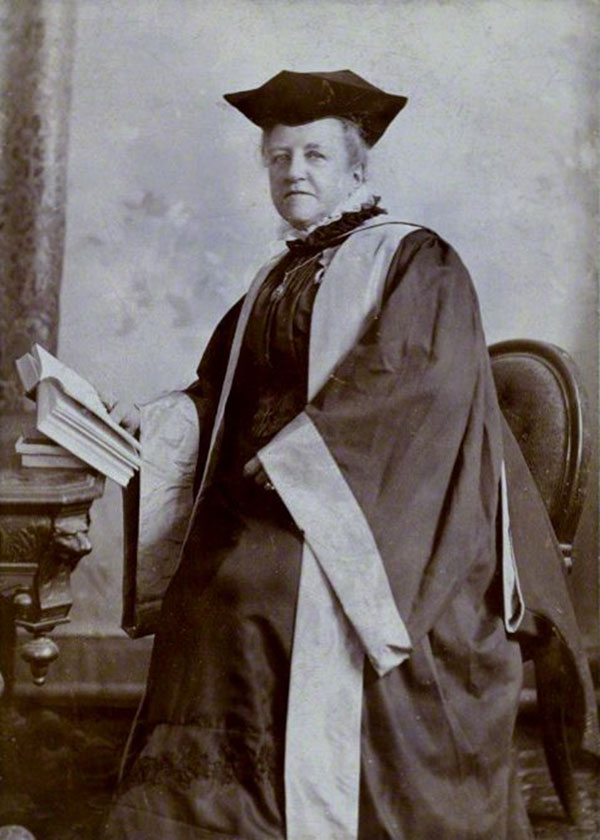Beale’s take on Browning’s faith - 1882

Dorothea Beale wrote about Browning’s faith.
Introduction
Dorothea Beale was a suffragist, an educational reformer and advocate of women’s education, author, and the principal of Cheltenham Ladies’ College which she helped establish. A church-goer of high church principles, she was motivated by deep religious feeling. At Cheltenham she instituted quiet days—devotional meetings for teachers—at which addresses were given by church leaders. She was also a scholar. Among her writings were studies of great religious poems, including a study of Robert Browning’s religious views. In a paper read at the tenth meeting of the Browning Society, on this day 27 October 1882, she insisted that the great poet was not a pantheist and pointed her listeners to Christ through Browning’s words, although her interpretation of Christianity is more sentimental and universalist than many utterances of Christ would suggest.
Quote
“The lovers of Browning’s poetry wonder that any one can ask the question, ‘Is he a religious poet?’ True, he has not written religious epics as Dante and Milton, and there are but few poems which are definitely on religious subjects, but the unseen is ever present to him. He is ever seeking to interpret the seen by the unseen, to justify the ways of God to man. He is ever conscious of the double life, of a Divine presence….
“Thus Browning seems to me a prophet whom God has given to our storm-tost age, a pilot who has learnt by long experience the hidden rocks and sandbanks on which the vessel of faith may be wrecked, now that the old anchor chains are burst asunder. An infallible Church, an infallible Book, an infallible Pope, all these have failed us—failed us that, rejecting the stones of the desert, we may learn that man does not live by bread alone, but by the word of God doth man live….
“Browning brings us, as it were, face to face with our complacent religious selves, and he bids us then follow, cling to Christ, say with our hearts, ‘Where Thou goest, I will go’. Then we listen to those words, ‘Where two or three are gathered together, there am I in the midst’—there I will be present, with infinite compassion and love; not only with the refined and cultivated and aesthetic, but with those who are in your eyes ugly and ignorant and narrow; in that miserable little Bethel, out of which you have dashed with contempt, I will be present, because there souls are seeking Me, and are longing for the light, and are therefore growing up into it, though their life does seem so dreary and dark to you; present with those you despise for utter want of aesthetic sense; present in the great cathedral, with those too whom you regard as superstitious, because the emotions of their souls are expressed in the ascending incense, the thrilling music, the pictured form. Yes, even with him who knows Me not as a living Presence, but desires truth; who has with toilsome steps climbed the mountain-tops, that he might dwell in a region of pure light, and who is starving amidst the snows; even to him I come, breathing warmth and love, and therefore life. None are cast out of My Presence; if you cast out from your love any human soul, you must let go then of the hem of that garment from which virtue goes out to all suffering humanity….”
Beale, Dorothea. “The Religious Teaching of Browning,” in Literary Studies of Poems, New and Old. London: George Bell and Son, 1902.





